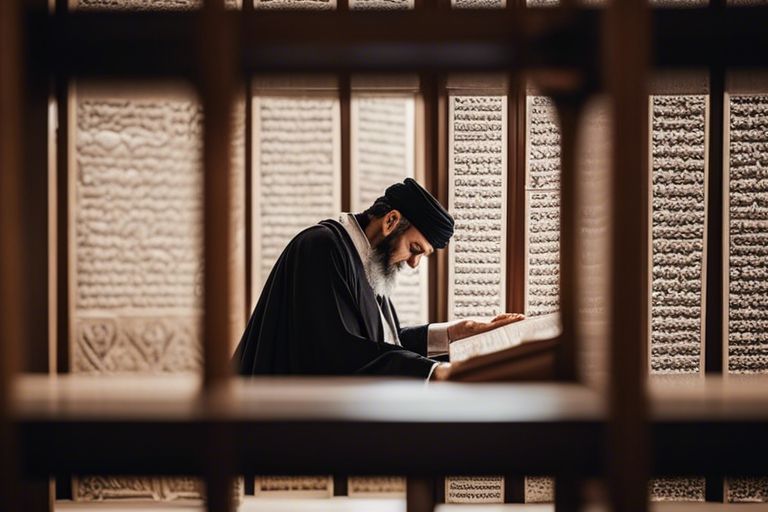Hadith, the recorded sayings and actions of the Prophet Muhammad, holds a significant place in Islamic scholarship. Pursuing a Doctorate in Hadith Studies equips scholars with a deep understanding of the authenticity, interpretation, and application of these sacred texts. This advanced degree not only requires rigorous study of Hadith literature but also fosters critical thinking and research skills crucial for contributing to the field of Islamic knowledge.

Key Takeaways:
- In-depth study: A Doctorate of Hadith and Its Sciences (Ph.D. in Hadith Studies) provides an extensive and specialized study of Hadith literature, its authenticity, narrators, and interpretations.
- Research skills: The program hones research skills, critical analysis, and scholarly writing, enabling students to contribute significantly to the field of Hadith studies through original research.
- Academic credibility: Graduates with a Ph.D. in Hadith Studies receive academic recognition as experts in the field, opening doors to teaching positions, research opportunities, and leadership roles in academia.

Foundations of Hadith Studies
Definition and Importance of Hadith
To understand the foundations of Hadith studies, it is crucial to comprehend the definition and importance of Hadith. Any serious study of Islam must involve Hadith, which are the sayings, actions, and approvals of the Prophet Muhammad (peace be upon him). Hadith provide guidance on various aspects of life, serving as a source of Islamic law and ethics.
Historical Development of Hadith Studies
Foundations of Hadith Studies are rooted in its historical development. Hadith studies evolved as a response to preserving the teachings of the Prophet Muhammad (peace be upon him) after his demise. Initially passed down orally, the need for authenticating and compiling Hadith became imperative to safeguard the integrity of Islamic teachings.
Hadith scholars meticulously verified the chains of transmission and scrutinized the content of narrations, resulting in the establishment of a comprehensive science dedicated to Hadith studies. This development laid the groundwork for the structured methodology used in the field to this day.
Methodologies in Hadith Analysis
Classification and Verification of Hadith
Any examination of Hadith involves rigorous classification and verification processes to ensure the authenticity of Prophetic traditions. Scholars scrutinize each narration’s chain of transmission and content to establish its accuracy and reliability.
Role of Isnad and Matn in Hadith Authentication
Hadith authentication relies heavily on the study of both the Isnad (chain of narration) and Matn (actual text) of the tradition. Isnad helps trace the transmission of the Hadith back to the Prophet Muhammad, while Matn scrutinizes the coherence and consistency of the content.
It is vital to recognize that the Isnad and Matn work in conjunction to assess the reliability of a Hadith. A weak Isnad or a problematic Matn can cast doubt on the authenticity of a narration, highlighting the intricate relationship between these two elements in the process of Hadith authentication.

Critical Issues in Hadith Interpretation
After exploring the complexities of Hadith interpretation in the context of pursuing a Doctorate of Hadith and Its Sciences Ph.D. in Hadith Studies, scholars often encounter critical issues that require deep analysis and understanding.
Contextualization of Hadith Texts
Issues around the contextualization of Hadith texts are paramount in understanding the true meanings and implications of the sayings of the Prophet Muhammad. It is crucial to examine into the historical, cultural, and social contexts in which the Hadith were narrated to derive accurate interpretations.
Addressing Contemporary Challenges through Hadith
An important aspect of Hadith interpretation is its relevance in addressing contemporary challenges faced by Muslims globally. Scholars engage in understanding and applying the teachings of Hadith to modern contexts, offering insights on how these timeless traditions can guide and inspire in today’s complex world.
Hadith interpretations offer a nuanced approach to contemporary issues such as social justice, gender equality, and ethics. By studying the Hadith in-depth, scholars can provide meaningful solutions and insights that resonate with modern-day challenges.
Contributions of Major Scholars in Hadith Sciences
Classical Scholars and Their Impact
One of the prominent classical scholars who made significant contributions to the field of Hadith sciences is Imam al-Bukhari. His compilation of authentic Hadith in Sahih al-Bukhari set a standard for Hadith authentication that is still revered today.
Modern Contributions to the Field
On the modern front, scholars like Dr. Jonathan Brown and Sheikh Akram Nadwi have been instrumental in bridging the gap between traditional Islamic scholarship and contemporary academic research in Hadith studies. Their works have not only enriched the understanding of Hadith sciences but have also brought relevance to the field in today’s context.
To research deeper into the advancements made by modern scholars in Hadith studies, it is crucial to explore the methodologies they employ in evaluating and contextualizing Hadith literature. These scholars often combine traditional Islamic hermeneutics with modern academic research techniques to provide a holistic approach to studying Hadith literature.
Summing up
With this in mind, pursuing a Doctorate of Hadith and Its Sciences (Ph.D. in Hadith Studies) is a rigorous academic endeavor that requires dedication, passion, and a deep understanding of Islamic scholarship. Graduates of this program will emerge as experts in the field of Hadith studies, equipped to contribute valuable research to the Islamic community and beyond.
FAQ
Q: What is a Doctorate of Hadith and Its Sciences?
A: A Doctorate of Hadith and Its Sciences, also known as a Ph.D. in Hadith Studies, is an advanced academic degree that focuses on the study of Hadith, which are the sayings and actions of the Prophet Muhammad. This program researchs deep into the collection, authentication, and interpretation of Hadith, as well as the historical context and methodology of Hadith scholarship.
Q: What are the prerequisites for pursuing a Doctorate of Hadith and Its Sciences?
A: In order to pursue a Doctorate of Hadith and Its Sciences, candidates typically need to have a strong background in Islamic studies, Arabic language, and Hadith scholarship. Most programs require a Master’s degree in a related field, proficiency in classical Arabic, and a solid understanding of Islamic theology and jurisprudence.
Q: What career opportunities are available with a Ph.D. in Hadith Studies?
A: Graduates with a Doctorate of Hadith and Its Sciences have a wide range of career opportunities available to them. They can work as university professors, researchers, or scholars specializing in Hadith studies. They may also pursue careers in Islamic publishing, religious leadership, or work for Islamic organizations focusing on Hadith authentication and dissemination.

